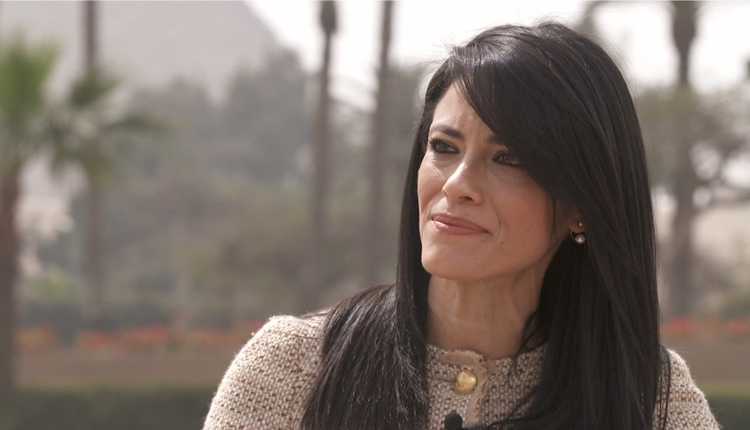37
Egypt is teaming up with international organisations to mitigate the impact of the coronavirus pandemic on all sectors and to ensure food security, International Cooperation Minister Rania Al-Mashat told Ahram Online on Tuesday.
The Egyptian minister has also urged international institutions to play a role in providing specialised technical support and financing for middle income and low income countries, besides asserting the importance of alleviating debt burdens for these countries.
She made the comments during a high-level virtual panel organised by the International Fund for Agricultural Development (IFAD) on Tuesday to discuss the importance of international developmental cooperation to face the coronavirus pandemic’s repercussions on the agricultural sector and on food security.
The panel was attended by 80 officials and international institution representatives from 19 countries around the world.
They included ten ministers and ten deputy ministers, as well as representatives from the United Nations’ World Food Programme (WFP) and World Health Organization (WHO).
Al-Mashat said Egypt took early steps to contain the outbreak, and President Abdel Fattah al-Sisi had decided to allocate 100 billion pounds to a comprehensive plan to face the socio-economic implications of the pandemic.
“The ministry of health also took several measures in this regard, and the Central Bank of Egypt (CBE) adopted parallel procedures, including decreasing interest rates by 3 percent. The crisis also drove structural reform relating to social protection, unofficial labour and financial inclusiveness,” said Al-Mashat.
She pointed out that Egypt’s government also has appropriated allocations for farmers to secure their sound management of agricultural crops through digitalisation, which will ensure farmers’ knowledge of food safety standards in order to protect Egypt’s exports of fresh products and to ensure securing strategic commodities such as wheat.
Al-Mashat stressed that the efforts dedicated to combating the pandemic have not caused the drive to achieve the Sustainable Development Goals to be overlooked, clarifying that the ministry has presented a new international development partnership narrative based on three pillars, people at the core, projects in action and purpose as the drive, which aims to achieve sustainable development as a priority in all sectors.
On the agricultural sector, the minister said that the Egypt’s government collaborated with international institutions which are concerned with food security, including IFAD, WFP and WHO, in order to conduct a quick assessment of priority requirements in support of farmers as well as to maintain food security for citizens.
“Those institutions determine their operations in Egypt based on the latter’s priority needs, in collaboration with the Egypt’s ministries of international cooperation, agriculture, social solidarity and local development, in addition to different governorates across Egypt,” she said.
Concerning regional coordination, Al-Mashat noted that Egypt was highly interested in regional integration, especially in light of its assets in the field of agriculture and its commodity market, its progress across Africa during its presidency of the African Union last year and its efforts to become a regional hub for the management of agricultural development activities in the region, which would, in turn, enhance regional cooperation.
Further, she shed light on cooperation taking place between Egypt and IFAD, especially as IFAD has opened a semi-regional office in Cairo recently, as Egypt is IFAD’s largest country of operations in the Far and Near East and North Africa.
She indicated that the regional office expedited IFAD’s response to the Egyptian government’s priorities of inclusive agricultural development, especially in the most vulnerable areas, which has positively reflected on agricultural projects in Egypt.
“This will also support Egypt’s move to become a regional hub for agricultural development management in the region, in light of the volume of cooperation between Egypt and IFAD, which has reached $1.1 billion over 14 projects, with seven million rural citizens benefiting from these projects,” said the minister.
